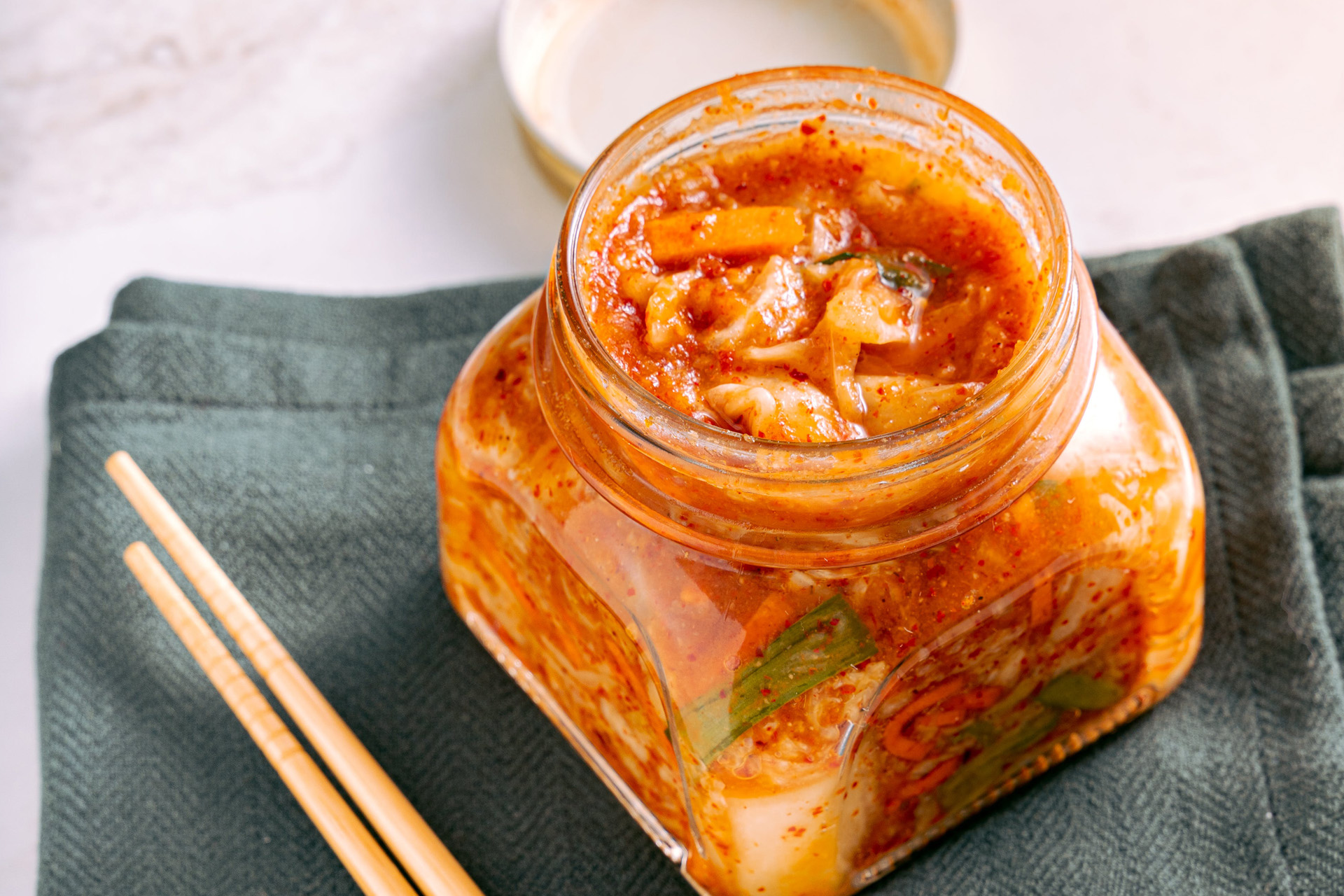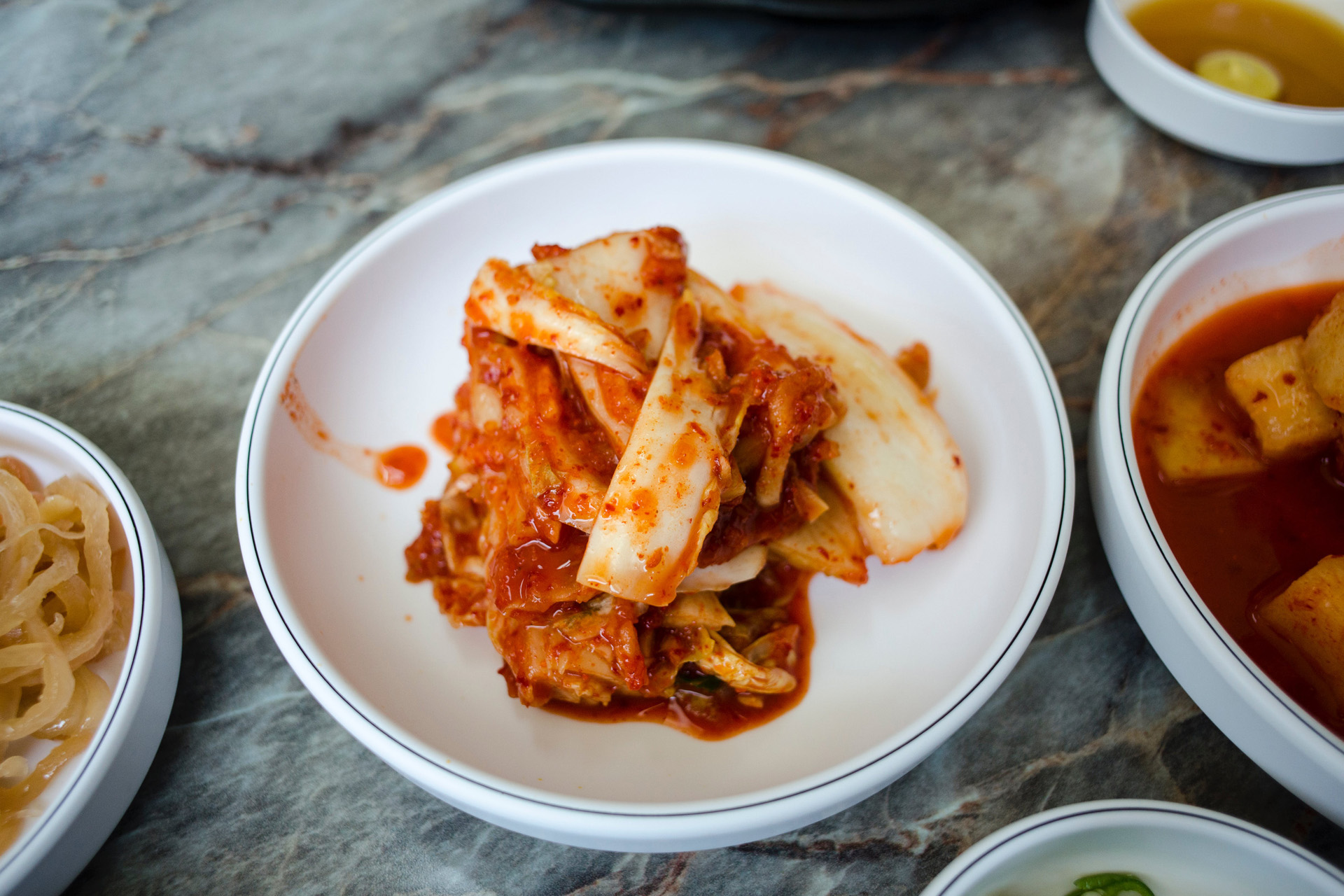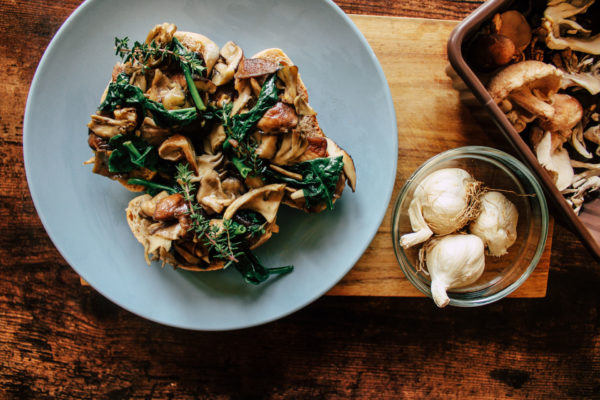What Is Kimchi? & Why Does Everyone Love It?
By
1 year ago
Everyone’s going crazy for kimchi

New research suggests eating kimchi everyday might help stave off weight gain, while it’s also known for strengthening gut health, digestion and the immune system. But aside from its benefits, people are falling head over heels for this Korean staple dish. Here’s why – plus how to make it for yourself.
The Rise Of Kimchi

What Is Kimchi?
‘Kimchi is a traditional Korean side dish of salted and fermented vegetables, such as napa cabbage and Korean radish,’ chef Bettina Campolucci Bordi tells C&TH. ‘A wide selection of seasonings are used, including gochugaru, spring onions, garlic, ginger, and many other ingredients. Kimchi is also used in a variety of soups and stews.’
What Does It Taste Like?
‘It’s a little bit spicy because of the gochugaru, which also gives the distinct red colour,’ says C&TH’s in-house kimchi lover, Charlie Colville. ‘The flavour depends on the balance of ingredients and spices; the kimchi at Wagamama, for example, it’s very garlicky. Kimchi generally contains cabbage, but don’t worry – it doesn’t taste like boiled cabbage. It’s salty, slightly sour, and really refreshing as you eat it cold. It’s also really crunchy – I really like that. I’ve also seen recipes for cucumber kimchi on TikTok, which I really want to try.’
This distinctive tangy taste and abundance of variations epitomises why people love kimchi so much: it’s easy to make, very versatile, has a satisfying flavour, and is great for your health to boot.
Is Kimchi Good For You?
Evidence is continuously published proving that, yes, kimchi is very good for you. It is packed with probiotics because it is a fermented food, meaning it boasts health benefits such as regulating the immune system, promoting weight loss, fighting inflammation and even slowing the ageing process.
How To Make It
Chef Bettina Campolucci Bordi shared her Kimchi recipe with C&TH, which you can read here.
How To Use It
Kimchi is most commonly used as a side dish, but can also be incorporated into other dishes, including:
- Fried rice
- Folded into scrambled eggs
- Mixed into tomato sauce with pasta
- Inside dumplings (with minced meat or tofu)
- Savoury pancakes
- Cheese toasties
- Mac & cheese
- Burgers
- Fried chicken






